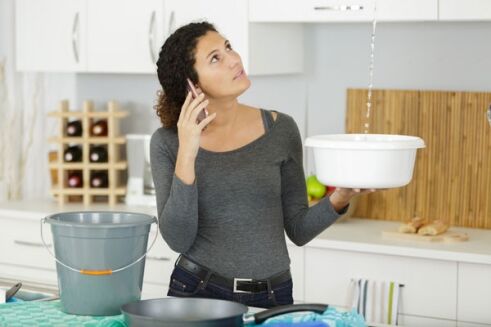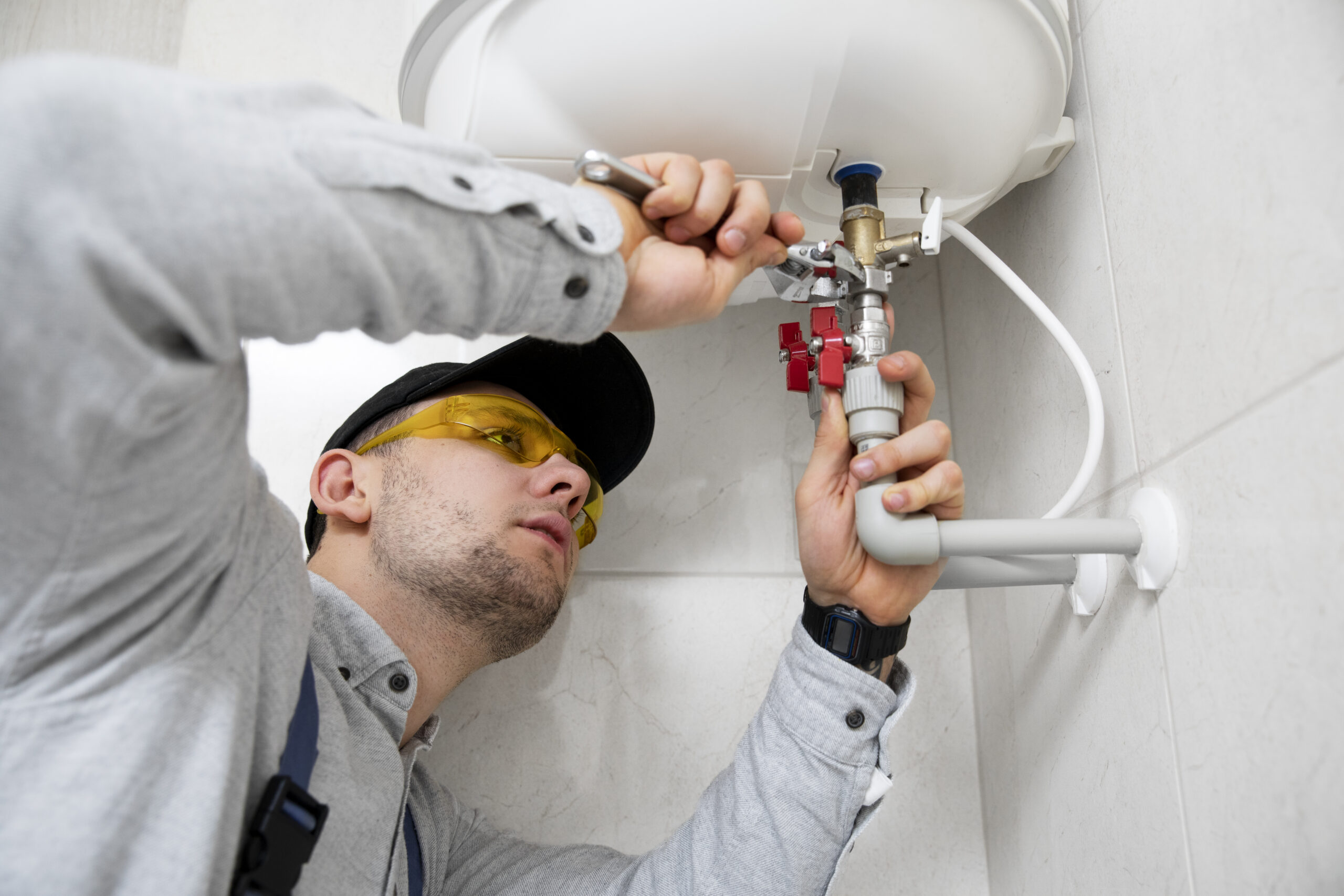Immediate Solutions for Emergencies: What to Do Until Help Arrives
Immediate Solutions for Emergencies: What to Do Until Help Arrives
Blog Article
What are your opinions about Plumbing Emergencies: Tips on What To Do Before?

Pipes emergencies can strike at any moment, creating stress and prospective damages to your home. Whether it's a ruptured pipe, a blocked drain, or a dripping tap, knowing how to take care of the situation up until an expert plumbing professional arrives can save you from additional issues. This write-up provides important emergency situation pipes pointers to aid you minimize damages and reclaim control throughout a pipes situation.
Switch off the Water System
The initial step in any pipes emergency situation is to turn off the supply of water. For local problems, such as a leaking tap or bathroom, shut off the shutoff near the fixture. In the case of a major leakage or ruptured pipeline, find your home's main water shut-off valve and transform it off quickly. Recognizing the location of these valves in advance can conserve beneficial time during an emergency.
Address Small Leaks with Momentary Repairs
Tiny leakages can promptly become substantial problems if left untreated. Make use of these short-term solutions until expert aid arrives:
While these repairs aren't long-term, they can assist lessen water loss and damages.
Unclog Drains Pipes Securely
A clogged drain can be an aggravating and messy issue. Below's how to tackle it:
If these approaches do not work, stay clear of utilizing excessive pressure, as it may get worse the obstruction.
Take Care Of Overflowing Toilets
An overruning commode can trigger immediate chaos. Below's what you must do:
Turn off Your Water Heater
In particular emergency situations, such as a burst pipe, it's important to shut off your water heater. This protects against getting too hot or damage to the unit when water quits streaming. Turn off the power supply to the hot water heater (electrical or gas) and let it cool to stay clear of prospective dangers.
Briefly Quit a Ruptured Pipe
A ruptured pipe can lead to substantial water damage in mins. To alleviate the issue:
Call an expert plumbing promptly to resolve the issue completely.
Deal With Frozen Piping Thoroughly
In cooler climates, icy pipes are a typical emergency situation. If you think an icy pipe:
Avoid Additional Damages
Taking fast activity to decrease damage can save you money and time over time. Right here's exactly how:
. Have an Emergency Situation Pipes Package
Prepare a standard pipes emergency situation set to deal with minor issues effectively. Your kit should consist of:
Having these tools accessible can make a substantial distinction in your capability to handle emergencies.
Know When to Call a Professional.
While quick fixes can aid momentarily, specific plumbing concerns need instant professional attention. Call a plumbing professional if:.
Without delay getting in touch with a specialist guarantees the concern is resolved properly and protects against additional difficulties.
Final thought.
Pipes emergencies can be frustrating, but with the ideal expertise and tools, you can take care of the situation successfully up until aid arrives. By shutting off the water supply, dealing with little leakages, and using momentary solutions, you can reduce damages and maintain your home safe. Remember, these ideas are short-lived remedies; always seek advice from an accredited plumber to deal with the source of the trouble. Preparation and quick thinking are your ideal allies in any kind of plumbing emergency.
8 Helpful Tips for Managing Plumbing Emergencies at Home
If your plumbing system hasn’t failed once, wait for it because almost everyone has a story to tell. Sometimes, it could be simple emergencies such as a leaking pipe, a blocked cistern, or even a big burst pipe. In situations like this, you need to have some handy tips to save you some money and from possible damages.
Take care of minor issues early.
Sometimes, you could have avoided an emergency by taking proactive measures while it was still early. Some major plumbing emergencies can be a result of an ignored minor issue. We recommend that you have items like plumbing tapes and other related items. A plumbing tape can allow you to manage minor leaks before the plumber arrives.
Cut off the water supply.
This tip is essential in almost any type of leakage problem. For problems like minor leakages in the toilet or kitchen, turn off the supply that takes water to the affected pipes. If the leakage is a major pipe, you must shut off the supply valve to the entire building. This will help you avoid flooding your home and neighbors if you share a flat.
Know your plumbing system
Folks typically move into a new apartment without understanding the water supply around the building. This can prove disastrous if a water emergency arises and the plumber is far away. The previous tip will prove useless if you don’t practice this one. More importantly, know where your water shut-off valve is located – you’ll need that knowledge to prevent potential home floods.
Have some common handy tools
There are lots of plumbing emergencies that you can handle without hiring a plumber. That’s why you must keep some tools available always. Some tools that you can use to fix simple plumbing emergencies easily include plumbing tapes, screwdrivers, thread seal tapes, plungers, pliers, tape measures, and rubber gloves.
Insulate your pipes from cold
You’ll save yourself from many plumbing expenses if you protect your water pipes from the cold. This is because of the harmful effects that cold weather can have on your pipes. During winter, your pipes can burst from being overly expected to freezing temperatures. So, make sure insulators are there to keep the pipes working correctly.
Avoid practices that will clog your toilet.
Many people indulge in practices that can damage the plumbing system of the entire building. One of these is when they use their toilet to dispose-off garbage. They flush all kinds of things, such as paper towels, bandages, hairs, female sanitary products, etc., down the toilet. This will block your toilet in the long run, incurring unnecessary expenditures. Dump such waste in the trash instead.
Check your dials regularly.
Sometimes, there could be leakages in your home without noticing them in time. So, constantly monitor your water meter dial. If the dial is reading when there is nobody using water, this is an indicator that there is leaking. Check for leaks immediately. Call a plumber as soon as possible if you can’t find any.
https://www.constructionplacements.com/8-helpful-tips-for-managing-plumbing-emergencies-at-home/

Do you really like reading up on What to Do While Waiting for an Emergency Plumber? Give a comment below. We'd be pleased to hear your insights about this write up. Hoping that you visit us again later on. Kindly set aside a second to share this blog if you liked it. Thanks for your time. Revisit us soon.
Call Today Report this page